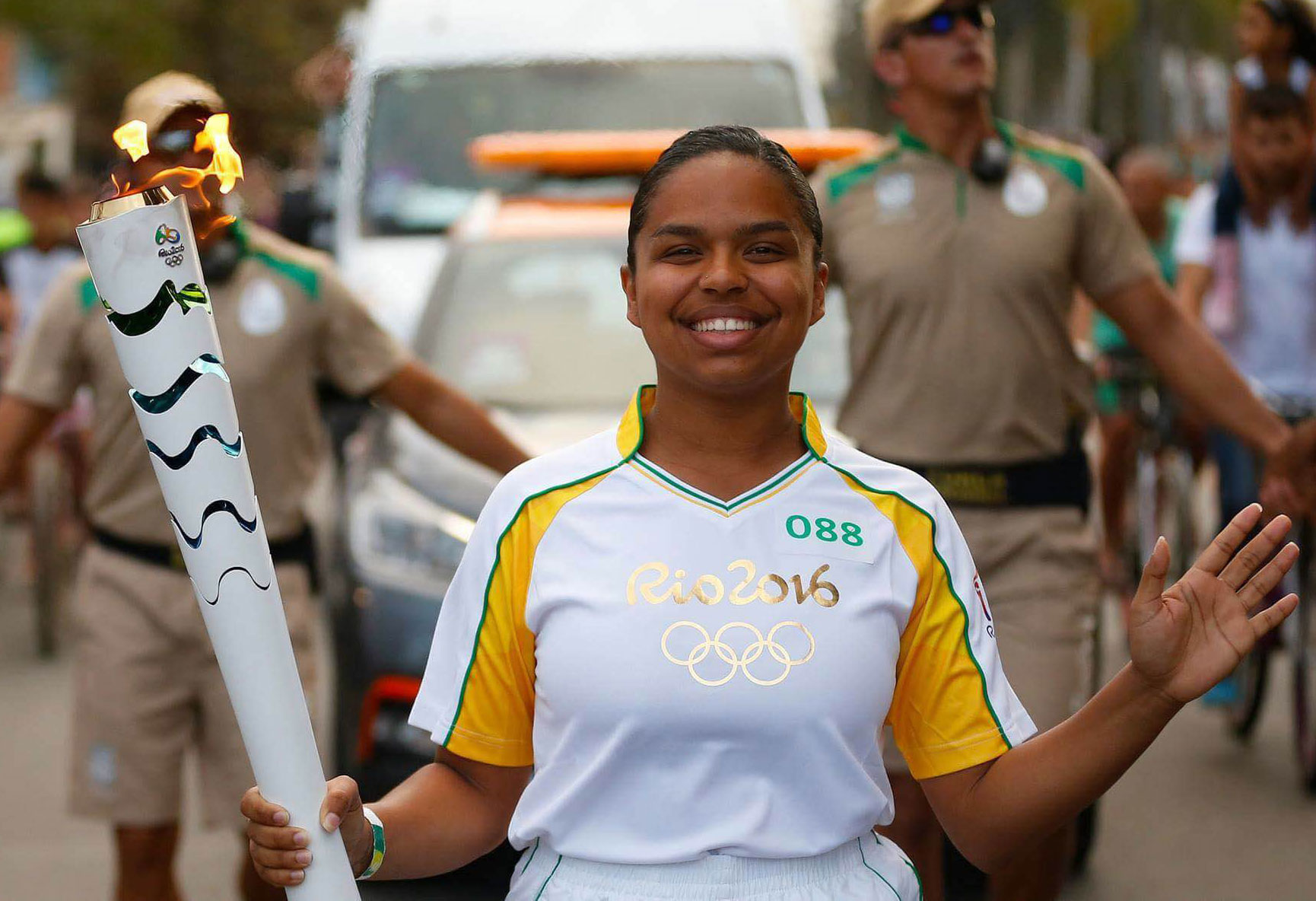| Do Good, Feel Good |

Raising Her Voice to Amplify Other Voices
By Mica Clausen
Photo Courtesy of Pauline Batista
As a teenager in her hometown of Paraty, Brazil, Pauline Batista '16 MA was enrolled in a rigorous five-year teacher- training high school and held multiple paid internships. "It was very hectic because I would leave my house at 7 in the morning and come back at 10 at night," Batista says. "Your average 15-year-old is not dealing with all that. But for me, that was normal."
She didn't slow down in the summers, working for Festa Literária Internacional de Paraty (Flip), the largest literary festival in Brazil. Her work as program coordinator of youth-oriented FlipZona included media and filmmaking programs and inspired her early interest in filmmaking. At Mitchell College in New London, Connecticut, she focused on video production, but after graduation, she says, "I started to get really critical of the relationships between what we call people from the North and people from the South" — those regions of the world that have more and, respectively, less wealth and power. After earning a master's degree in Latin American studies at UConn, she decided to return to Brazil for a year while deciding what to pursue next.
"I go back home after all those years and, after participating in this literature festival since 2002, for 14 years, every summer," she says, "I learned that the media program was going to be entirely cut. I was enraged."
Batista ended up in a meeting with the secretary of education for Paraty, whom she effectively lobbied for the refunding of the program — a success she attributes to the critical thinking she learned at UConn. "I was exposed to the right body of work and literature," she says. "The conversation shifts because I could shift the conversation."

We are all in need of a little happiness and a little inspiration lately, so we've devoted this issue of the magazine to stories of just a few of the many UConn faculty, staff, students, and alumni who spend their days doing good in the world, making it a better place for all of us.
The experience made her a bit of a hero at home, and she was asked to be a torchbearer for the Rio Olympics in 2016. It also made her want to expand her skill set even more. "That was when I started thinking, 'Maybe I should really get a Ph.D.' because people like me typically don't have a voice," Batista says. "But if they have the right education, all of a sudden, they have a voice. All of a sudden, the door is open." She decided to enroll as a doctoral student at the Neag School's Department of Educational Leadership.
"That was a really important moment in my life because my skill set really came together," she says. "Everything clicked."
In the Ph.D. program, Batista has learned about youth-led research methodologies and participatory filmmaking projects, bridging her experience at Flip to her research. She focused her doctoral research on international organizations and Latin American education. "The whole idea is to showcase how it is that international organizations have power over education in Latin America," she says.
Batista conducts her research through Youth Participatory Action Research, a research model that involves collaboration and co-ownership of research work with youth. For Batista, this means co-authoring papers, co-creating filmmaking projects about local education, and organizing local events.
"We're going to be bringing the youth together to make short films, and the youth are going to have ownership of the short films, and they can use them as they please," she says. "If that means they call attention to policymakers, they are entitled to do that. It's their films that we produce together."

Leave a Reply